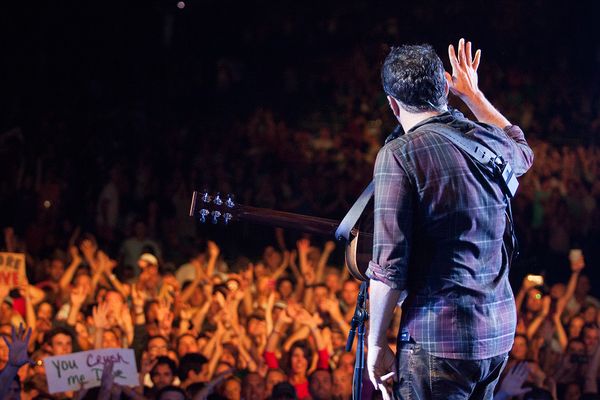Most people who have seen the movie version of Grease can easily identify one of its key musical numbers. “You’re The One That I Want” is almost synonymous with Grease, equaling some of its fellow famous numbers such as “Greased Lightning,” “We Go Together,” and “Summer Nights.” However, this was not the original penultimate song in the stage version. In the first Broadway production, not only did “We Go Together” serve instead as the closer to Act One, followed by a reprise to end the show; the last number was a song entitled, “All Choked Up.”
Firstly, it is important to know the basics of “All Choked Up.” The titular phrase refers to when an individual is so overcome by emotion, usually of the sad variety, that they are unable to act or express themselves normally – something holds them back. Much like the movie version, in the original Broadway version, Sandy has undergone a massive transformation: from a clean, but cute “goody-goody,” to a much more assertive and, by some considerations, aggressive woman. As the Burger Palace Boys are about to exit offstage, they are approached by the changed Sandy and the Pink Ladies. The Burger Palace Boys, especially Danny, are completely taken aback. Danny struggles to find words when talking to Sandy, which leads into the song.
Danny starts the song at his own tempo and with lots of liberty rhythmically, before coming to a consistent rhythm and allowing his fellow male greasers to join in on backup vocals. Danny sings about being speechless and in pain and in need of Sandy. However, he gets cut off by the Pink Ladies, allowing Sandy to jump in and sing solo as well, with the Pink Ladies backing her up. She talks about understanding Danny’s pain, demonstrating empathy, before essentially forcing Danny to apologize and beg for her forgiveness:
“Oh baby, take my heart and don't complain,
My poor heart just can't stand the strain,
I can cure your disease, Come on and say pretty please,
Take your medicine down on your knees.”
Danny, at least per my show’s blocking, falls to his knees and begs. Sandy, however, is not convinced, believing there still to be “strings attached.” Danny and Sandy have some further back and forth, before they start to reconcile and apologize to each other. With full out backup from both the Pink Ladies and the Burger Palace Boys, both Sandy and Danny sing about being all choked up. The song ends here, opening up the last page of dialogue before the end of the show.
Up until this point, I have been fairly objective in my observations, but now it is time to stir the pot a little. I firmly believe this song, “All Choked Up,” to be better than “You’re the One that I Want,” and would rather do the former over the latter in any subsequent productions of Grease. Why? There are certainly the basic reasons. The backup part to “All Choked Up” is much more engaging and fun than that of “You’re the One that I Want.” Also, the lyrics are more complex and meaningful, and much less repetitive in “All Choked Up.” You can find the lyrics for “All Choked Up” here, and the lyrics for “You’re the One that I Want” here.
But there are a few other reasons as well. Firstly, “All Choked Up” sounds like a song from the 1950s; “You’re the One that I Want” sounds nothing like the sort. One is a precursor to classic rock, while the other sounds like it belongs in the disco. Secondly, “All Choked Up” actually makes an effort to resolve the problem at hand, giving it the full time and duration necessary, whereas “You’re the One that I Want” almost superficially resolves the problem in the first thirty seconds. For me, in the movie version, it is almost as if singing suddenly made everything okay. In the original stage version, it is not quite that simple, Danny has to really, really work for Sandy’s forgiveness. It takes the entire duration of the song to do so.
Lastly, in “All Choked Up,” there is a greater sense of female empowerment. Sandy has the power over Danny, and has him down on his knees begging. Sandy has the power of choice: she can take him, or leave him. In the end, she chooses forgiveness, joining back with him, paving the way for a happy rendition of “We Go Together (Reprise).” While the musical itself is not perfect as far as gender relations are concerned – as it is a product of another time period – it gets the final scene as right as it could, and “All Choked Up” is one of the biggest reasons why.













 man running in forestPhoto by
man running in forestPhoto by 










